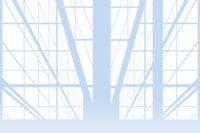Rosalind Williams, in her book Retooling, gives both an insightful historical perspective on engineering - the scientific explanation of observed physical phenomena - and some meaningful suggestions about its future. Two of my "takeaways" from it are as follows:
-
° The narrow deep discipline focus of the past century must be replaced by more integrated holistic training and practice. Anyone who designs and builds complicated buildings knows this; each discipline can perfect its own design but compromise the ability to build the whole project in the process.
° While engineers excel at answering "what can technically and economically be done," we don't participate enough in influencing the broader social dialogue about "what should be done." How many times do we hear, "I'm only the engineer," used to rationalize something obviously wrong that goes unchallenged? Perhaps we're "only the engineer" because we've allowed society to put us there - and that has sobering consequences for our future. Perhaps we're "only the engineer" because it relieves us from joining a difficult and delicate discussion.
This is most relevant in how engineers view natural resources - an area where the building design industry can have a major impact! Many people feel we are facing an ecological and social crisis from which there is no escape. How is engineering helping? Do we see resources as limitless commodities to be managed and consumed based solely on life-cycle costing?
When Life-cycle Cost Spins Its Wheels
Dean Paul Peercy of the University of Wisconsin's College of Engineering comments often on these issues. My favorite quotation is, "Engineering is where science meets society." If this is true (and I think it is a great vision for engineering's future), then the currency of the exchange between science and society must include a better balance between natural and economic resources.For example, I am regularly confounded by owners who trade resource inefficiency (energy and water) for human labor. All too often I'm told, after having dutifully performed a detailed analysis, that despite the lower life-cycle cost and lesser resource impact of an option, the chosen system must be the lowest perceived maintenance. The rationale for this is usually "we always pay the utility bills, no matter how fast they grow, but maintenance staff can always be cut."
I feel compelled to question this. To these ends, we're working on the following at Affiliated Engineers, Inc. (AEI):
The First Step
We're attempting to create an entity to refocus engineering to inspire hope and help us find our collective way. This group will engage existing organizations and institutions in a unique manner, centered on dialogue about stewardship as the core construct of engineering. The spirit of this endeavor is to create a future for engineering as a discipline that is honored, and that recognizes and acts upon its responsibilities to a much broader community.Many groups have been working toward similar outcomes for a long time. The results, in my opinion, have ranged from mere symbolism, to modest incremental progress surrounded by systemic setbacks.
Additionally, we hope to explore a new type of partnership between the public and the private sectors. In an era of reduced public funding for engineering education, coupled with increased pressure on philanthropy, a new model of mutual support is needed. This model could be based on much closer collaboration - educators better informed by practice so that graduates embody stewardship in all they do, and practicing engineers better informed by educators so that application of stewardship principles can be both meaningful and advanced.

